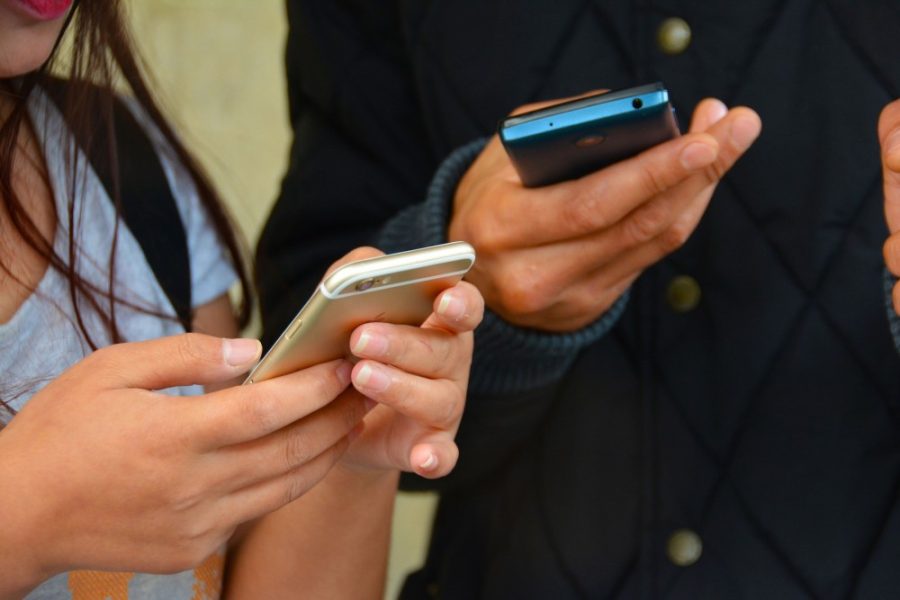We’ve all been trained to disregard 800 numbers, but now scammers are outsmarting us.
The xylophone ringtone that all iPhone users have goes off during a lecture. It sounds far away, until I realize it’s my stupid phone going off, buried somewhere deep in my backpack. I frantically take out Tupperware, binders and folders, keys, shoes and everything else until I reach my phone to silence it. This better be important. The caller ID is a number similar to my own, like the first six digits similar.
I’ve learned through trial and error that numbers almost identical to my own are telemarketers or scammers telling me for the third time that I’ve won a trip to the Bahamas. This is called “spoofing,” where a caller deliberately falsifies the information transmitted to your caller ID display to disguise their identity, as stated by the Federal Communications Commission.
Now we are dealing with a whole new kind of trickery: neighbor spoofing. Using a software called Voice over Internet Protocol, telemarketers and scammers can mimic a person’s area code and the first three digits of their phone number. A survey from Software Advice found that people are four times more likely to answer a local number than an out-of-state or toll-free number.
“Every one of those I have answered,” said Jasmine Castro, a junior majoring in law. She scrolled down her blocked call list to show her friends all the spoofed phone calls she’s received. Regardless of her efforts, she continues to receive them. “Sometimes I think it’s from work or someone I know, so I don’t want to miss it.”
RELATED: Opinion: How private is your social media account?
The reason people are doing neighbor spoofing is obvious: to get people’s personal information. But is it illegal to do this? Yes and no. The Truth in Caller ID Act of 2009 states that spoofing is illegal if the person is calling with the intent to defraud, cause harm or wrongly obtain anything of value. Other than that, “non-harmful spoofing,” as courts call it, is legal.
An example of non-harmful spoofing is when your Uber driver calls you. A one-time-use phone number is generated to replace the driver’s own number to ensure privacy between customers and drivers.
To give you an idea of how bad these annoying prerecorded phone calls are, in August alone, 2.9 billion spoofed calls were placed nationwide, according to YouMail, visual voicemail and Robocall blocking software. This is a huge leap from the 3.5 million calls in 2015. This topic has become the Federal Communications Commission’s top complaint, and there are no signs of it stopping. Even if you added your number to the outdated 14-year-old National Do Not Call Registry, you are still prone to receiving these calls.
I’ve learned to trust that if someone wants to reach me, they’ll leave a message. I don’t try and call the number back, either. This is highly recommended because, when you engage in the phone calls, it tells the software that your number works and may be passed on to other databases, according to AARP.
Even though I don’t answer, I still receive them from time to time. There are useful apps that screen calls before they reach your phone, such as Hiya and Truecaller, which may help block numbers.
RELATED: Column: Using social media to get ‘likes’ from employers
It’s important to be aware of who has your phone number. When signing up for services, contests or buying clothes from sketchy websites, AARP suggests that you not give out your phone number unless required, in person or online.
As robocalls continually make billions of unsolicited calls, mobile carriers will hopefully start to catch on and implement better call screening into their plans. For example, AT&T offers an extra charge for their Call Protect app. Until then, I’ll be sure to silence my phone.
Sammy Minsk is a senior who once wrote her phone number on 37 dollar bills. Apart from telemarketers contacting her, she occasionally receives high school kids calling for a good time.
Follow Sammy Minsk on Twitter









